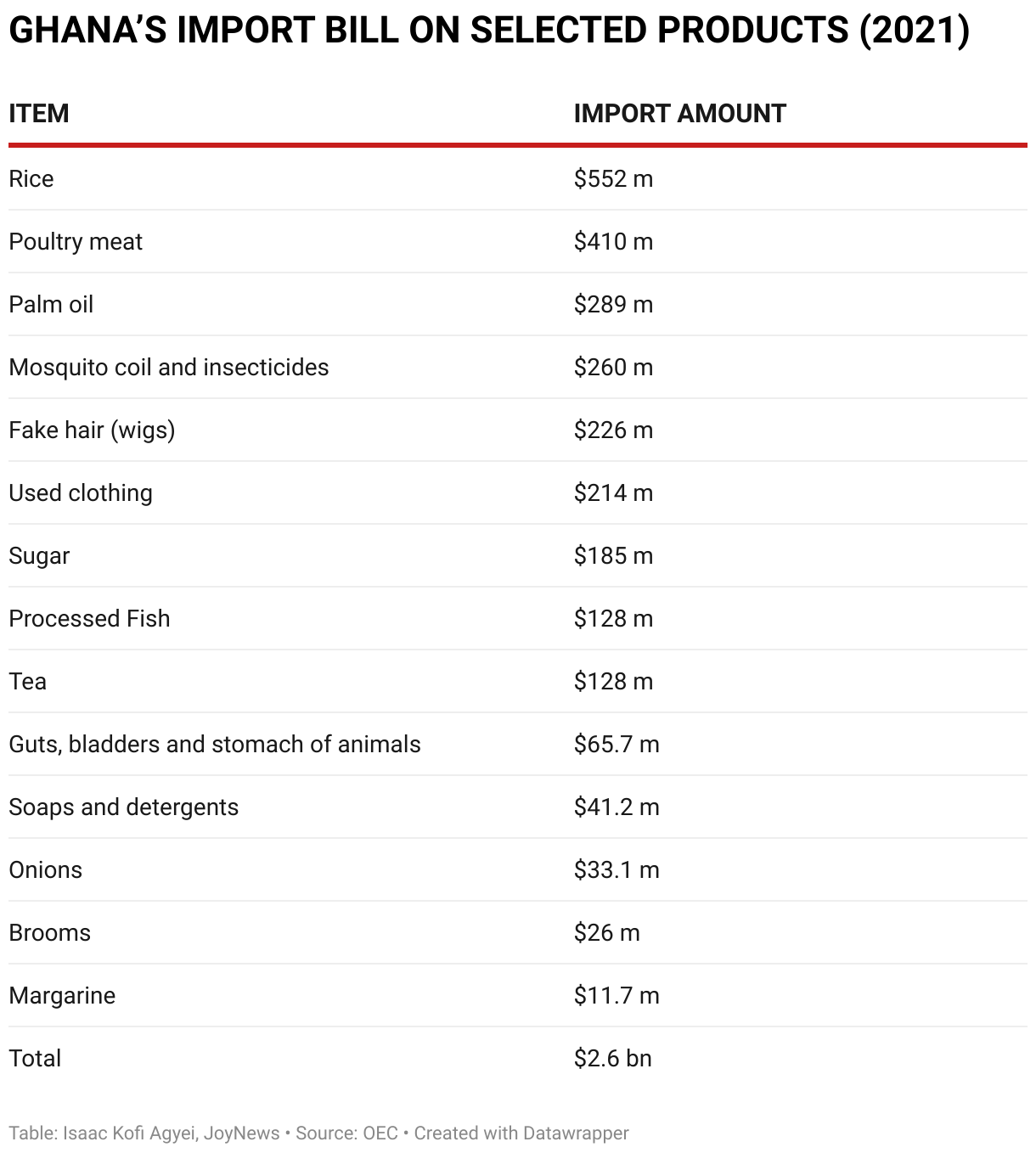
It has been disclosed that Ghana spent an estimated $2.6 billion on the importation of fake hair (wigs), rice, brooms, used clothing popularly called 'Obroni Wawu', brooms and other 10 products.
Reports by JoyNews indicated that the OEC trade data repository revealed the country in 2021 spent more than half a billion dollars on rice importation, more than $400 on poultry meat and close to $290 million on palm oil.
It also revealed that $260 million was spent on mosquito coil and insecticides, $128 million on processed fish, $33.1 million spent to import onions and $26 million spent on brooms.

Earlier, the government through the Ministry of Trade and Industries presented a bill to parliament aiming to limit the importation of essential items, including popular goods like 'yemuadie' known as animal intestines.
The bill will restrict the importation of 22 products into the country.
The ministry aims to enhance the local economy and promote domestic producers by creating a market for their goods. Importers interested in bringing in the listed items must obtain certification from the ministry before importing them into the country.
The L.I seeks to restrict the importation of some selected strategic products, such as rice, poultry, diapers, and other products.
However, the bill faced stiff opposition after the Minority in Parliament said the L.I the Akufo-Addo/Bawumia NPP government is desperately attempting to introduce in Parliament has very far-reaching implications for Ghanaians.
But the government said it has suspended the Export and Import Regulations 2023 bill, halting its planned implementation.
The products affected by the import restriction bill are
• Rice
• Guts, bladders, stomachs, and intestines of animals
• Poultry
• Frozen cuts and offal of fowl
• Animal, vegetable, coconut, and palm oil
• Margarine
• Fruit juices
• Soft drinks
• Mineral water
• Ceramic tiles
• Corrugated paper and paper board
• Mosquito coils and insecticides
• Soaps and detergents
• Motor cars
• Iron and steel
• Diaper
• Polymers (plastic and plastic products)
• Fish
• Sugar
• Clothing and apparel
• Biscuits
• Canned tomatoes
• Aluminium products
Read Full Story

















Facebook
Twitter
Pinterest
Instagram
Google+
YouTube
LinkedIn
RSS